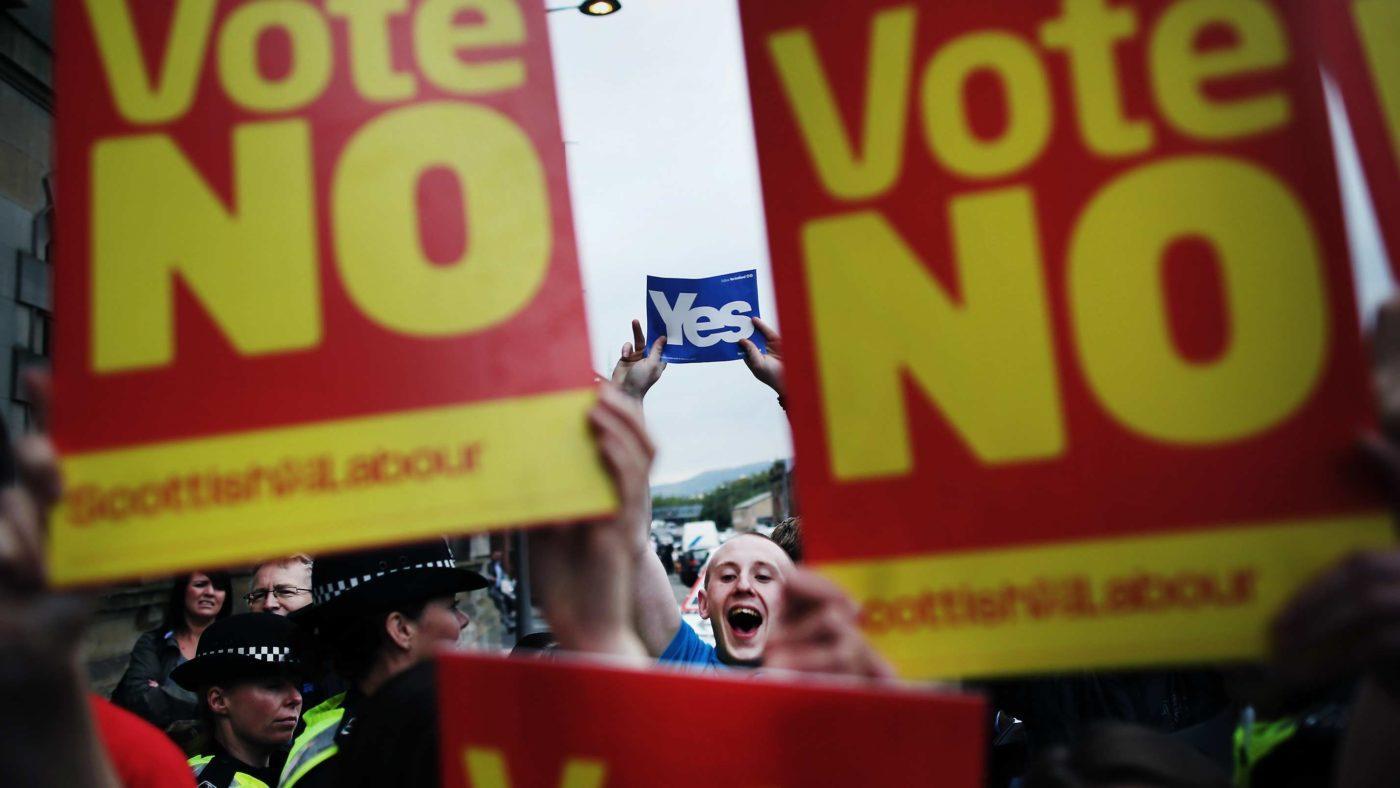When Theresa May triggers Article 50 next month, Nicola Sturgeon will use the occasion to demand a second referendum on Scottish independence. And so, as the UK leaves one union, a consequence may be that Scots decide to leave another, much older one. That, at least, is the concern in Number 10, according to yesterday’s Times.
Since the vote for Brexit last June – when Scots opted by a clear majority to stay in the EU but were overruled by their 10-times-larger neighbour – there has been a lot of speculation that a second indyref could be held in 2018. Ms Sturgeon has dangled the prospect over Mrs May’s head; Alex Salmond has made his usual bumptious boasts at Westminster; the SNP’s excitable membership has worked itself into something of a lather.
Now, it is suggested, the moment is nearly upon us. Scots will soon be asked to troop to the polling station for the fifth time in four years (three referendums and two elections), and this time we’re much more likely to take a leap into the unknown.
Well, maybe. It’s true that, for some of us who wrote and voted against separation in 2014, the Brexit vote has changed the calculus of the Union. That fateful decision, whatever some of its more credible advocates argue, was a blow to the liberal internationalism that was at the heart of my British identity, at least.
The tone and texture of my country, the Farage-liteness of things, is no longer one I fully understand or am comfortable with. There is no political party at Westminster to represent my centrist beliefs. In this light, and in the absence of a radical rebalancing, the opportunity to help shape a newly independent nation becomes more appealing. The continuity of the UK is now more a transactional matter than an emotional one.
But, still – and with the usual caveats entered – if there’s a second independence referendum within the next two years, I’ll eat my sporran. For the following reasons:
– Alex Salmond is a gambler by nature, Nicola Sturgeon is a much more cautious type
– The polls have barely shifted since Brexit – Scots remain split 50-50 on independence, as they largely have been since 2014
– Sturgeon has previously made it clear she’d want a convincing lead in the polls – perhaps 60-40 – for a sustained period before calling a second referendum
– A second loss within just a few years, which is by far the most likely outcome, would be catastrophic to the Nats’ cause
– Theresa May remains popular in Scotland, where her party is being led back to relevance and influence by the effervescent Ruth Davidson
– The consequences of Brexit for the UK economy remain unclear, but if there is a dramatic downturn once we leave the EU, that would hit Scotland every bit as hard. Would Scots really have the confidence at that stage to strike out on their own?
– The SNP has as yet failed to find a credible answer to its biggest stumbling block, namely the prospect of the new state being calved with a £15 billion deficit. There are other outstanding, if lesser, questions around currency and EU membership.
Many of the stereotypes about the Scots are true: we tend to be bolshy, chippy and just incredibly good-looking. But we’re not mugs.
I’ve long believed that the path to independence, if we’re ever to take it, will come through sustained evidence of good, effective governance on the domestic front – radical improvements to our unimpressive education system, real inroads to tackling the tragedy of our health record.
Proof of competence, seriousness of purpose and the willingness to take risks and unpopular decisions in the national interest might convince. Flags, swaggering and a relentless social media whinge-fest about Westminster never will.
People like me might, in time, vote for a separate Scottish state. But we’re not going to be rushed into it. The smartest thing the very smart Ms Sturgeon can do is face down the shrieking macaques who are urging her to go for it at any cost, and bide her time.
As for Mrs May, she should remember that the SNP is not Scotland and that the odds remain in her favour. But she should also bear in mind that the UK is not just Conservative England, and that Scots will always have a choice.


